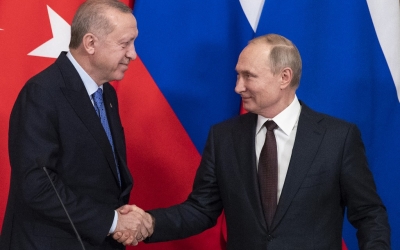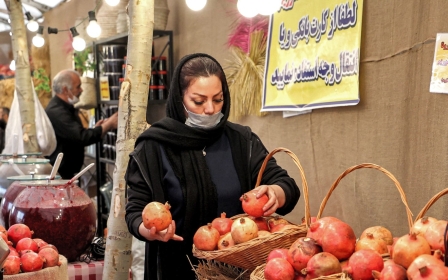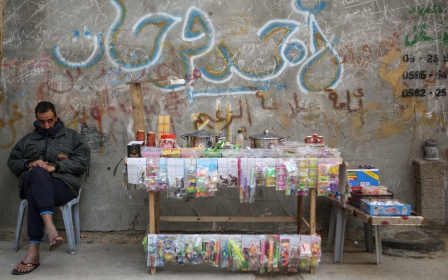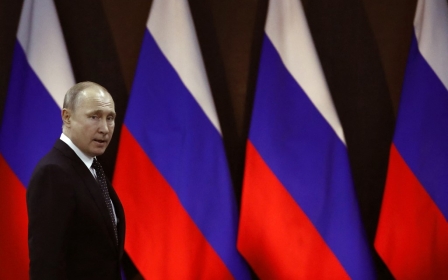Russia and Ukraine sign breakthrough grain deal brokered by UN and Turkey
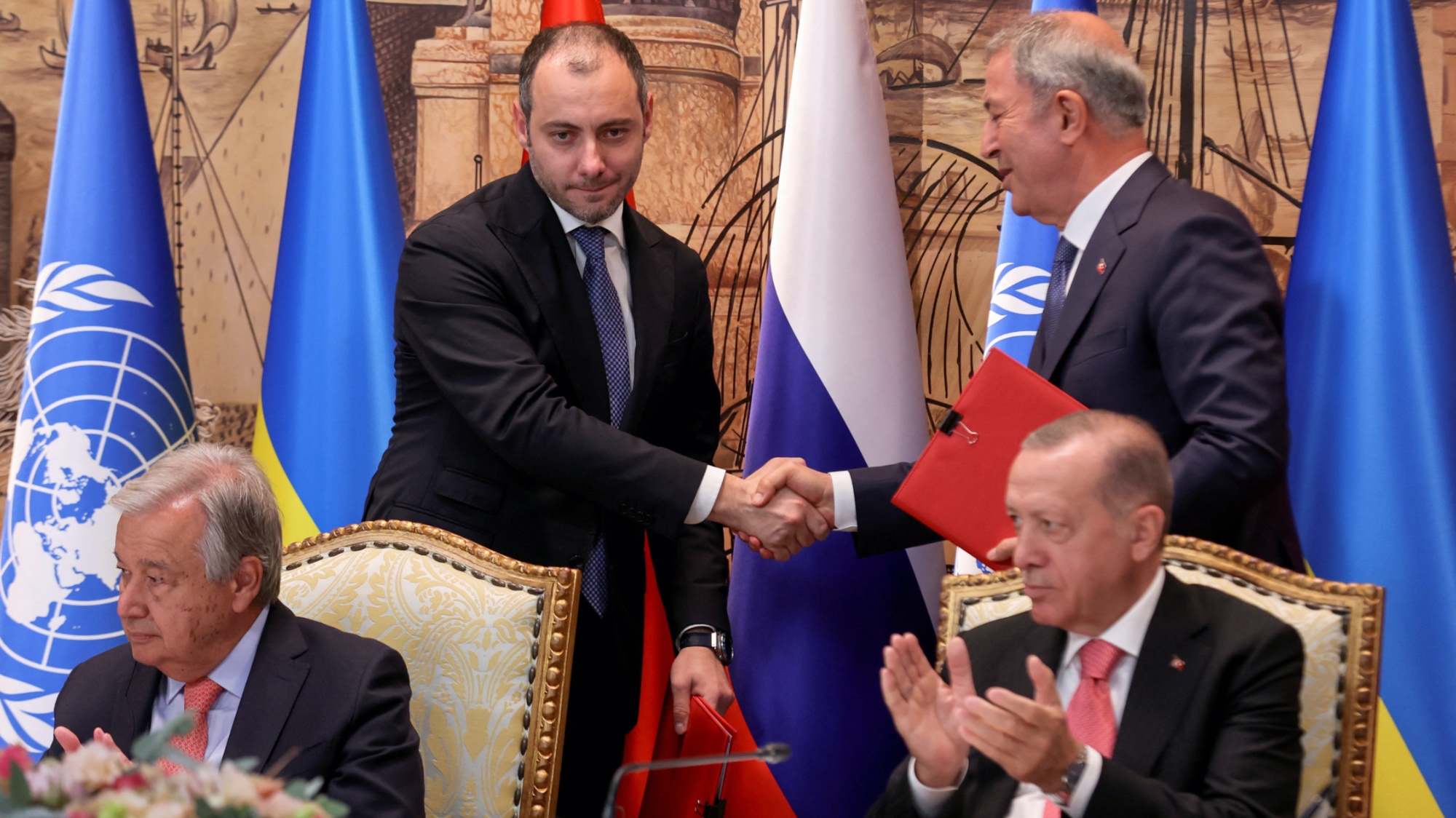
Ukraine and Russia on Friday signed a deal that should release an estimated 22 million tonnes of wheat and other crops, allowing Ukrainian grain to be exported through a carefully planned mechanism that involves Turkey and the United Nations.
While the deal empowers Turkey as the main interlocutor for the shipment of the grain, it also puts immense responsibility on Ankara to be the country that ensures the smooth transaction of the mechanism.
Turkish President Recep Tayyip Erdogan and UN Secretary-General Antonio Guterres attended the signing ceremony, with Russia represented by Defence Minister Sergei Shoigu and Ukraine by Transportation and Infrastructure Minister Oleksandr Kubrakov, who signed the export deal separately with Turkey and the UN.
"There is a beacon of hope and possibility in the Black Sea," said Guterres during the ceremony. "Our hosts President Erdogan and the government of Turkey's facilitation persistence has been essential through this process."
The agreement is likely to validate Turkey's policy of neutrality in the Ukraine conflict, which will also strengthen Erdogan on the world stage as a leader who has made progress in resolving the grain crisis.
New MEE newsletter: Jerusalem Dispatch
Sign up to get the latest insights and analysis on Israel-Palestine, alongside Turkey Unpacked and other MEE newsletters
Erdogan said he hoped the deal would leave a hunger crisis behind, amid global food shortages and higher prices, and be a step towards ultimately reaching a peace deal.
A joint command centre (JCC) will be established in Istanbul to ensure that everything goes according to the agreement, which will be valid for the next 120 days with automatic renewal. Any complaints about the operation will be assessed and resolved through the JCC.
Inspection teams that include officials from Turkey, Russia, Ukraine and the UN will board ships in a Turkish port before sailing to the southwestern Ukrainian port city of Odessa and two neighbouring ports and ensure that the ships are not carrying contraband or weapons.
A senior UN official told journalists that it will take 10 days for Ukrainians to ready their own ports and a few weeks to establish the centre and draft the inspection team.
The Ukrainians will pilot the merchant ships along safe channels and corridors to avoid minefields.
Navies from other countries will not be involved in the scheme except for their coastguards.
If the merchant ships change their course on their way to Odessa, the joint command and control centre will stop them and conduct additional reviews. A third country may also mine sweep the safe channels if there is a need for additional security checks.
An insurance premium
UN officials are hopeful that the mechanism will facilitate an affordable insurance premium for merchant ships and make it a commercially viable operation.
The Russian and Ukrainian authorities have committed themselves not to target merchant ships, civilian vessels and the ports, but it is reported that the Ukrainians have not sought any specific security guarantees.
The senior UN official said the Russians had kept their word when a deal was made to evacuate the Ukrainian city of Mariupol and the embattled steel factory Azovstal earlier this year, so they expect the Russians will uphold the current agreement.
Many experts are sceptical about whether Russia will honour its word, but UN officials have underlined that Moscow will also get something out of the deal by being able to export its own grain and fertilisers through a separate agreement with the UN.
Ukraine presidential aide Mykhaylo Podolyak said on Friday that any Russian breach of the deal and incursions around Ukraine's ports would be met with "an immediate military response".
Since the start of the war, Russian warships have blocked Ukrainian ports on the Black Sea from exporting and importing goods.
Both countries are major exporters of grain and fertilisers and supply large quantities of wheat to various parts of the Middle East.
Moscow denies that its actions have led to the price of grain skyrocketing across the world and said western sanctions have led to the food crisis.
The United Nations and Turkey have been working for two months to broker what Guterres called a "package" deal to resume Ukraine's Black Sea grain exports and facilitate Russian grain and fertiliser shipments.
Russia on Thursday said the latest round of European Union sanctions would have "devastating consequences" for security and parts of the global economy.
Middle East Eye delivers independent and unrivalled coverage and analysis of the Middle East, North Africa and beyond. To learn more about republishing this content and the associated fees, please fill out this form. More about MEE can be found here.


